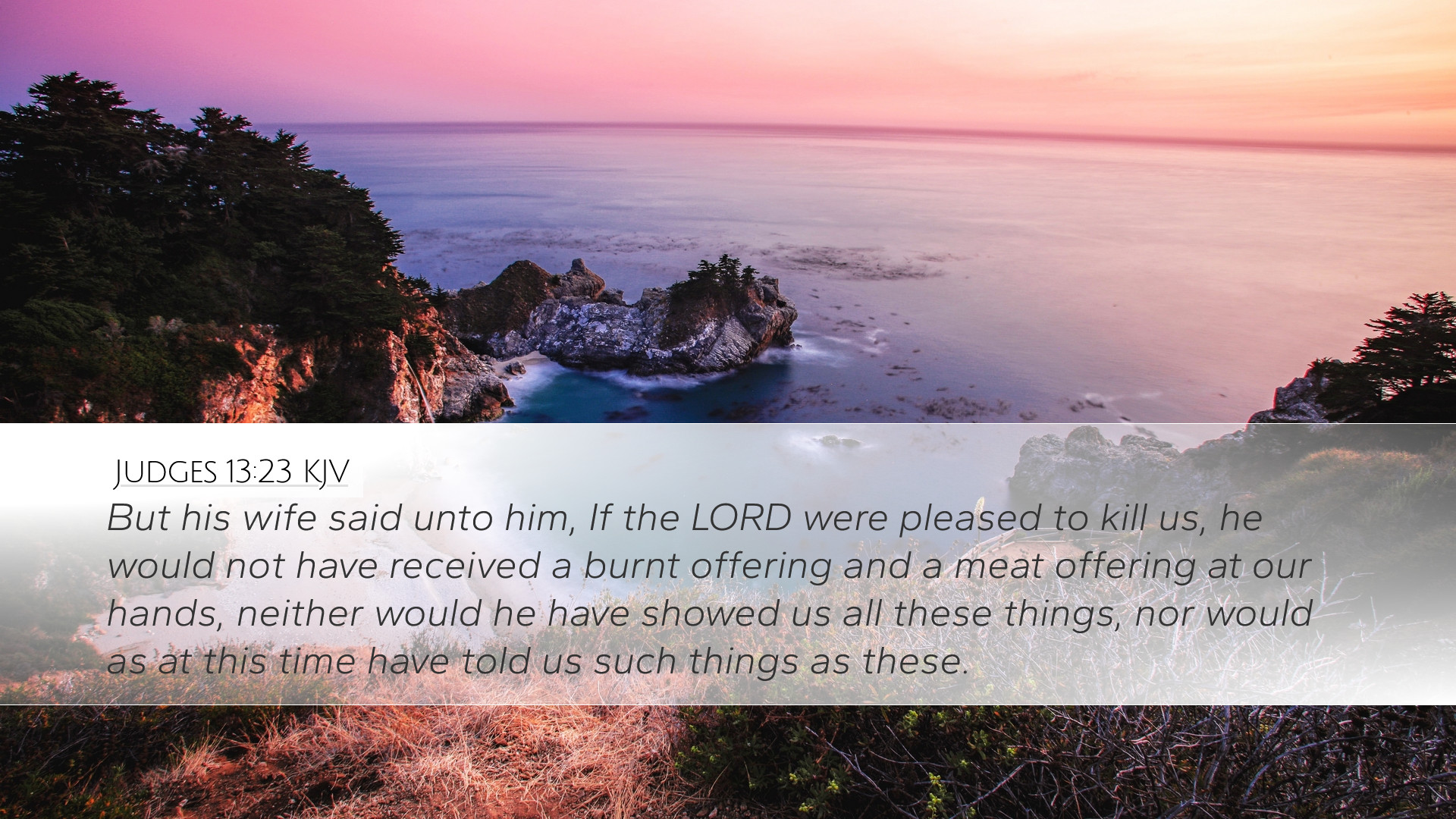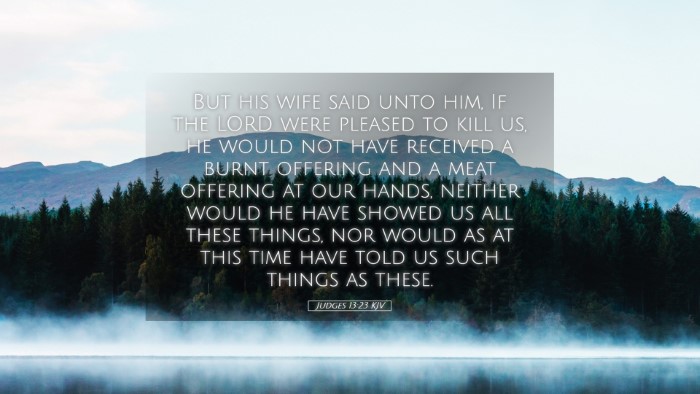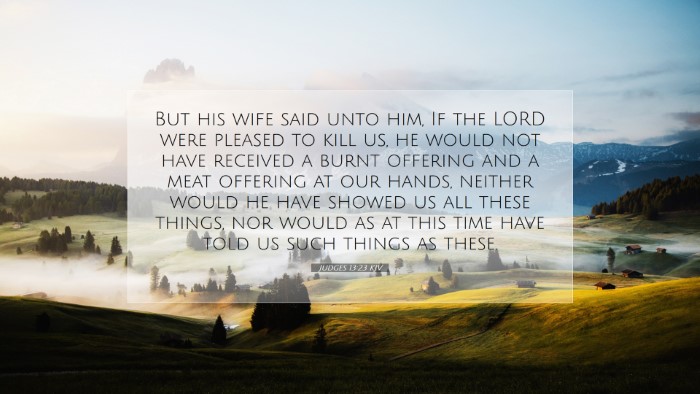Bible Commentary on Judges 13:23
Verse: "But his wife said to him, 'If the Lord had desired to kill us, He would not have accepted a burnt offering and a grain offering from our hands, nor would He have shown us all these things, nor would He have told us such things as these at this time.'"
Introduction
The narrative of Judges 13 introduces us to the birth of Sampson, a judge who would become a key figure in Israel’s history. Verse 23 reveals a profound theological reflection on God’s character, highlighting His patience and merciful nature in contrast to human fear and misunderstanding of divine intentions.
Contextual Analysis
The events leading up to this verse describe a visit from an angel of the Lord to Manoah and his wife, who were previously barren. The angel delivers a message of hope that they would have a son. When Manoah becomes fearful after realizing they have encountered a divine being, his wife offers a stunning theological insight that serves as the crux of this verse.
Theological Insights
- The Nature of God: This verse offers a glimpse into the character of God, revealing that His actions are driven by love and purpose rather than caprice. The logic presented by Manoah's wife underscores the principle that God's benevolence towards His people is consistent. As noted by Matthew Henry, God’s acceptance of their offerings is an indication of His grace, and not an endorsement of violence.
- Assurance in God’s Promise: Manoah’s wife challenges her husband’s fear by pointing to the tangible signs of God’s favor. Albert Barnes emphasizes this as a remarkable display of faith; when one witnesses God’s hand, it ought to inspire trust rather than trepidation.
- Human Misunderstanding: Human beings often interpret divine encounters with fear. Manoah’s initial reaction exemplifies the common tendency to fear the unknown. Adam Clarke suggests that this fear can lead to a disillusionment of God’s goodness, warning that it is crucial to ground fear in reverence rather than dread.
- Faith Amidst Fear: The wife’s response is a call to remember and reflect on God’s promises. This illustrates the theme of faith amid fear which is pervasive throughout the Scriptures. The counsel she offers reminds believers of the importance of reminding one another of God’s faithfulness in tough times.
Practical Applications
The insights from this verse extend beyond theological reflection and inform daily living, particularly for pastors, students, and theologians. Here are some practical applications:
- Encouragement to Trust God's Promises: Like Manoah's wife, believers are called to trust in God's assurances. When faced with uncertainty, recalling God’s past faithfulness can bolster faith.
- Understanding Divine Encounters: We must be vigilant in interpreting divine encounters with wisdom. Fear should not dominate our responses when we sense God's presence; instead, we should lean into His assurance and grace.
- Balancing Fear and Reverence: There is a healthy fear that leads to reverence, but it should not devolve into fear that limits our view of God’s goodness. This verse reminds us to cultivate a respectful awe of God while maintaining confidence in His loving intent.
- Pursuing Grace in Ministry: For pastors and leaders, this accounts for maintaining a narrative of grace. Reminding congregations of God's acceptance and willingness to bless despite human frailty is crucial.
Conclusion
Judges 13:23 encapsulates profound truths about the nature of God and the dynamic between fear and faith. The assurance offered by Manoah's wife serves as a model for how believers should respond in the face of uncertainty. As they engage with the realities of their faith, it is essential for all, particularly those in positions of teaching and leadership, to embody the reminder that God’s encounters bring grace, not dread.


